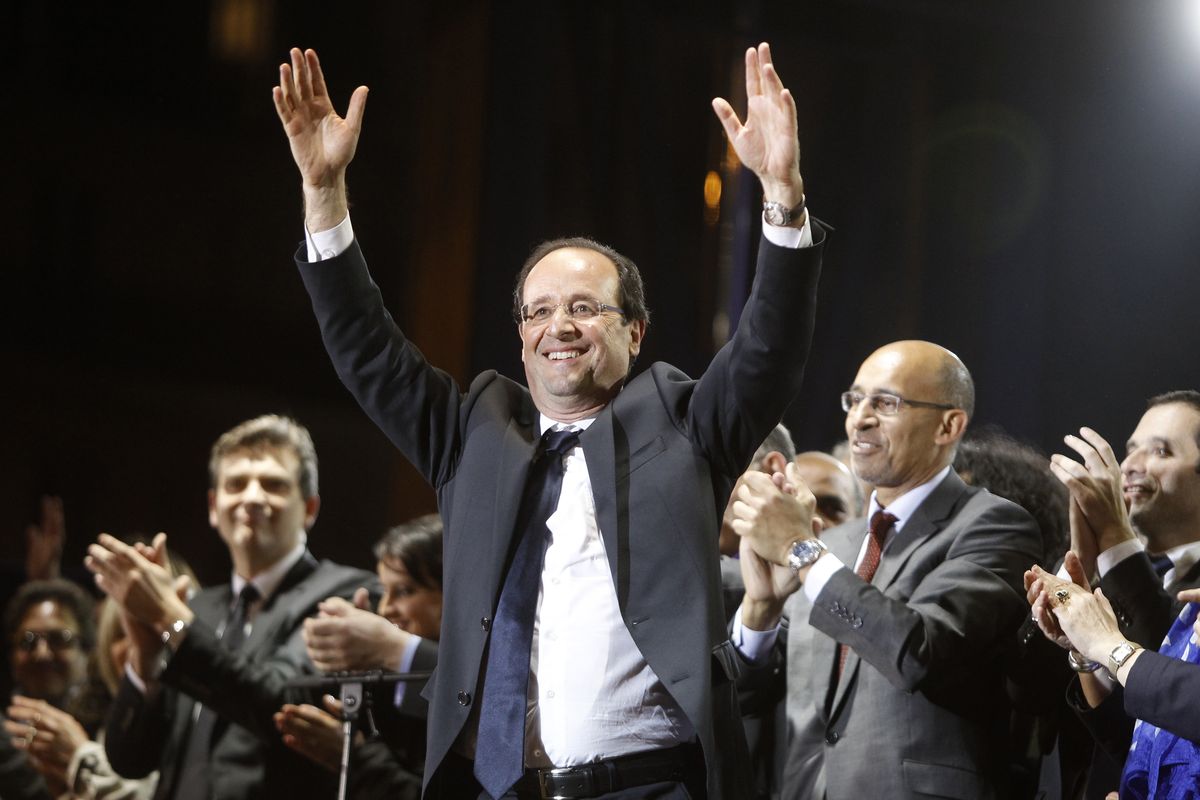French, Greeks vote ‘for change’
Sarkozy ouster puts debt deals in doubt

ATHENS, Greece – French and Greek voters delivered a sharp rebuke to their governments in national elections Sunday, raising questions about the viability of the European Union’s austerity program intended to preserve the euro as Europe’s dominant currency.
By a 52 to 48 percent margin, France elected Francois Hollande as its first Socialist president in 17 years, replacing the right-of-center Nicolas Sarkozy.
In Greece, voters delivered a stinging judgment against the two ruling parties that had supported austerity agreements with the EU, cutting their support by nearly half and raising questions about whether they would be able to assemble a new government. The biggest winners in Greece were the Radical Left coalition, which finished second, and the Golden Dawn party, a neo-fascist group that won parliamentary seats for the first time, with nearly 7 percent of the vote.
How the results will affect Europe’s economic planning remained to be seen. Sarkozy is a close ally of German Chancellor Angela Merkel, whose government has been the primary proponent of the tough austerity measures that Europe has undertaken over the past two years in an effort to head off a crisis triggered by huge sovereign debt in Greece, Spain, Portugal and Ireland.
Hollande has said he will press Germany to renegotiate the European agreement to enforce budget discipline and add a clause to stimulate stagnant economies and add jobs. He has also promised to raise the minimum wage and lower the retirement age to 60 from 62 for some workers, and to add 60,000 teaching jobs, all policies Sarkozy had opposed.
Hollande, who was scheduled to talk to Merkel late Sunday, avoided stirring rhetoric in his victory statement, referring only indirectly to Sarkozy’s divisive leadership.
“The French have decided for change in electing me to the presidency,” he said. “I pledge to serve my country with dedication. Tonight we do not have two Frances in confrontation. There is only one France, only one nation, unified in the same destiny.”
Sarkozy, the first top French leader to be denied a second term since 1981, took “full responsibility for the defeat” and told associates that he would quit the leadership of his Union for a Popular Movement political party, which faces elections next month for the National Assembly. It is now the majority party. Those elections will determine whether Hollande will be able to win approval for his program.
In Greece, party workers watched in stunned silence at the headquarters of the right-of-center New Democracy party as the results showed a fall in popular support to 20.5 percent, from 33.5 percent in the 2009 parliamentary elections. A senior party official said it was “like an earthquake.”
Even harder hit was the socialist PASOK party, which has largely dominated Greek politics since 1981 and won only 14 percent of the vote – down almost two-thirds from 44 percent in 2009.
But there were hugs and kisses all around at the headquarters of the Radical Left, known as Syriza, which won 15.6 percent, more than three times its 2009 total, and jubilation that the party had been catapulted to first place in the Athens area, where half of Greece’s 11 million people live.
And from a balcony at the building housing Golden Dawn, a party that uses a stretched swastika as its emblem, party leader Nikos Michaloliakos proclaimed victory before a crowd of about 800. “Veni, vidi, vici,” (I came, I saw, I conquered), he said, quoting from Julius Caesar’s triumphal arrival in Rome in 47 B.C. “You slandered me, you angered me, I defeated you,” he added, referring to attacks by other parties and the Greek news media.
Under Greek election law, which awards an extra 50 seats to the party with the biggest plurality, New Democracy may be able to form a government with PASOK, to which it was junior partner in an uneasy alliance since November. But it is likely to be a weak coalition and to produce spectacular battles in parliament – assuming it adheres to its commitments to the EU to raise taxes, fire public workers and reduce wages in exchange for $240 billion in bailouts.